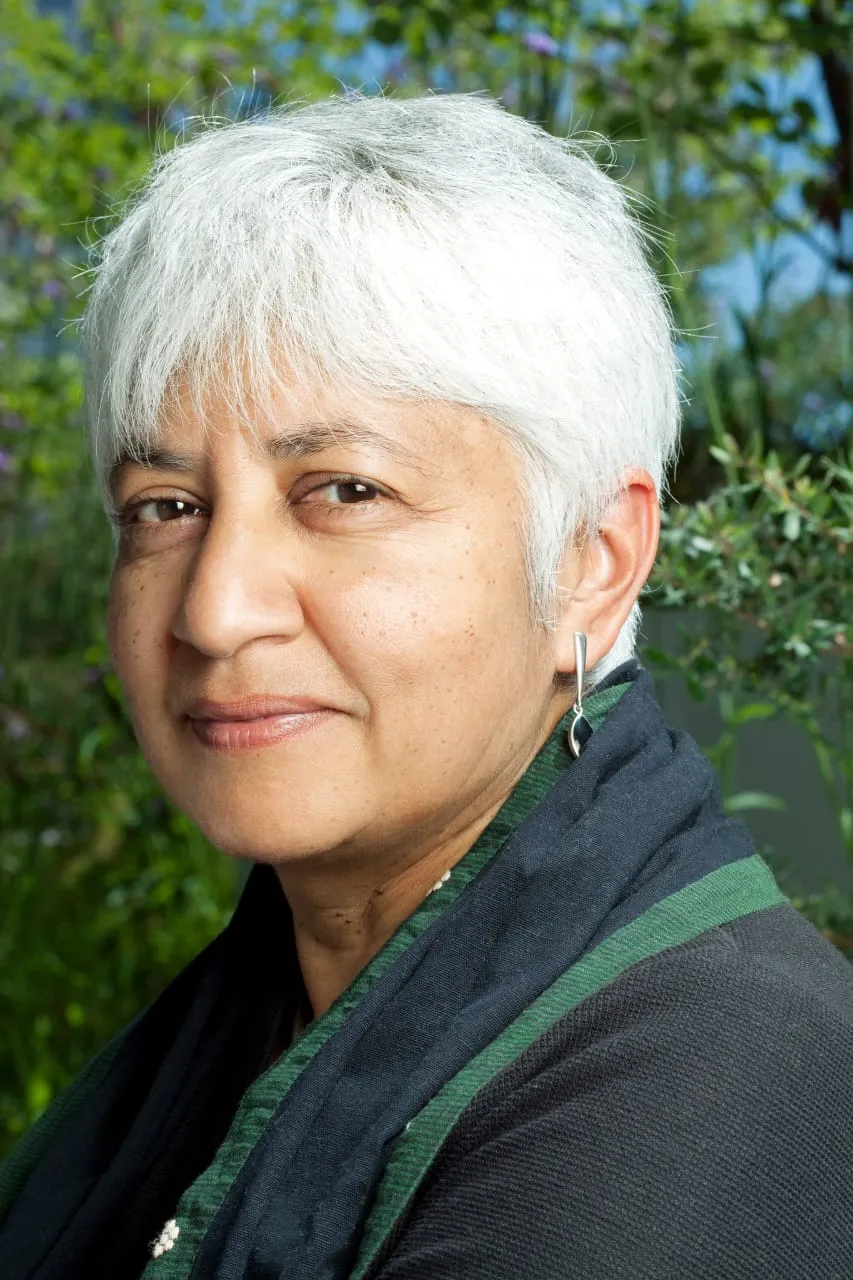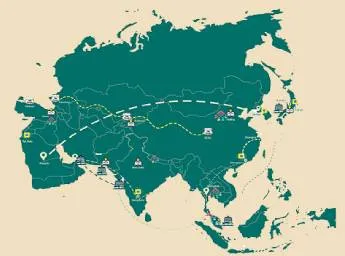
About the Centre
The Centre for Asian Studies (CAS) at GITAM Bengaluru drives interdisciplinary research and dialogue on Asia’s cultural, economic, and geopolitical landscapes. CAS promotes actionable insights and regional collaboration to address global challenges, emphasizing the need for intellectual leadership in understanding Asia’s interconnected complexities.
Focus Areas
-
Migration, Mobility and Citizenship
This cluster aims to examine migration patterns, mobility experiences, and the questions of citizenship in the Asian context. We explore the push factors of migration - colonial histories, economic vulnerabilities, conflicts, climate change, and statelessness - and the ways in which they drive complex migration flows, blending refugees and economic migrants in search of safety and aspirational livelihoods. We study the legal-political discourses that revolve around refugee governance such as border controls, the role of civil society organizations and aid agencies, and refugee activism for systemic change. We interrogate the legal-political frameworks that often tend to marginalize and dehumanize migrants, through comparative analyses of their lived experiences, registers and practices of inclusion/exclusion, complexities of identity formations, placemaking practices, visual cultures and literary representations in the host societies. We are also interested in understanding the politics of documentation of citizenship, practices of classification of migrants, the use of technologies, and ethical concerns of data privacy and fairness. -
Political Processes and Social Transformation
Intersection of Key Themes: Exploring the interplay of religion, ethnicity, and politics, with a focus on secularism, subalternity, and identity formation.
Reinterpreting History: Analyzing diverse narratives of historical events that contribute to identity conflicts.
Visual Cultures and Political Spaces: Understanding political spaces, identities, and violence through the lens of visual cultures.
Socio-Economic Challenges: Addressing socio-economic inequalities, ethnic conflicts, violence, and corruption.
Rethinking the Political: Investigating quotidian politics, social movements, institutions, and elections to challenge conventional understandings of the ‘political.’
Environmental and Social Dynamics: Examining environmental debates, state roles in shaping natural and social environments, and strategies of resistance. -
Languages of Performance
This research cluster brings together scholars from performance studies, musicology, literature, and cultural studies to explore the complex relationship between language, performance, and cultural identity across Asia. It aims to investigate the rich diversity of performance practices—from classical and folk to contemporary—while examining how these communicate across cultural boundaries, respond to socio-political challenges, and contribute to cultural transmission and identity formation. -
Health and Wellbeing
(a) The Holistic-Health sub-cluster recognizes the deep interconnectedness between physical, mental, social and spiritual well-being that determines overall health. Furthermore, this cluster consisting of scholars from disciplines such as linguistics, occult studies, health studies, and social psychology offers a transformative framework that emphasizes integration, balance, and fostering a deeper understanding of well-being. Holistic-Health approaches include Indian knowledge-based systems (yoga, consciousness studies, ayurveda, Indian traditional dance & music, Indian folk tales), mindfulness-based interventions, cognitive-behavioral approaches, and physical activities such as sports, exercises;
(b) The Food sub-cluster aims to close knowledge gaps in how food affects social behaviour, cultural identity formation, and physical and mental health through an interdisciplinary approach developed by scholars from the field of cultural studies, psychology, linguistics, literary studies, and health sciences.
-
Urbanization, Gender and Labour
This cluster highlights the economic importance of Asian nations in the global economy and reorients the discussion into rethinking capitalism, urbanisation, and governance from an Asian perspective. The specific characteristics of labour flows, of economic inequality, gender and language issues, social disparity and ethnic tensions will feature prominently in this cluster’s research. A unique characteristic of this cluster will be its attempt to draw in examples from ancient, medieval and modern history to illustrate its arguments. - Digital Technology and Cultural Change
This cluster explores the cultural and social transformations driven by rapid advances in digital technologies. Our initial explorations will be in three related areas, covering the performing arts, social media, and cross-cultural arts pedagogy: a) how digital technologies are reshaping the cultural landscapes of Asia’s performing arts; b) how we are redefining ourselves via digital technologies, especially focussing on recent trends in social media that have challenged conventional notions of privacy, social relationships, and institutions such as family; and c) how immersive digital tools, specifically Virtual Reality (VR), Augmented Reality (AR), and Mixed Reality (MR) could interact with cultural heritage, sustainable practices, and cross-cultural education. By focusing on the intersections between technology, humanities, and social sciences, the cluster adopts an interdisciplinary approach that fosters innovative methodologies for documenting, analysing, and reinterpreting cultural practices and knowledge systems.
- Praxis of Care and Healing
In this collaboration with the National Central University, Taiwan, the cluster develops an inter-Asian comparative framework to understand how care as a practice is deeply embedded in everyday life. We examine how care intersects with geo-social structures, offering a reframing of what it means to engage with the political in contemporary times. This cluster seeks to develop themes through an Inter-Asian methodology, focusing on: care and healing practices across Asian cultures; examining how modern values reshape or threaten traditional and folk practices; exploring care within family dynamics and how these relationships adapt to societal pressures; investigating gender-specific roles and expectations, particularly concerning women’s bodies; and analyzing how political and economic structures—such as the post-Cold War context and contemporary neocolonialism—mediate caregiving practices.
- South Asia in the South China Sea
This cluster embodies collaborations with the University of Hong Kong (HKU), the Chinese University of Hong Kong (CUHK), and the Hong Kong Polytechnic University (PolyU). Over the last few decades, scholars have explored South Asia’s longstanding and enduring connections with different parts of the world, with the Indian Ocean emerging as a particularly rich site for such studies. Placed just beyond the recognized limits of the Indian Ocean, the South China Sea and its surroundings have occupied an ambiguous space within this discussion. Though scholars have highlighted the region’s longstanding connections with South Asia, many aspects of these linkages, especially in the modern era, have yet to receive adequate attention. Through a focus on South Asia’s connections with this maritime region, China and the broader Sinophone world in the past and the present, this cluster aims to transcend area studies frameworks that have tended to separate the study of these areas. Current focus areas include migration from China to South Asia and SE Asia and vice versa; trade circuits between India and East Asia; map-making and colonialism across the land routes; the legacy of racialisation for minority rights issues between India and Hong Kong; cross-cultural musical collaboration and art-making between India and China.
Objectives
- Develop comparative and collaborative research initiatives across Asia.
- Foster partnerships with leading Asian universities and think tanks.
- Provide practical insights to address regional socio-economic challenges.
- Equip students and scholars with a deeper understanding of Asian societies and cultures.
Key Initiatives
CAS aims to engage the academic and broader community through:
- Annual Conference – “Asia in Transition”: A platform for scholars to discuss contemporary Asian issues.
- Collaborative Research Programs: Projects in partnership with regional universities to produce actionable research.
- Workshops and Certifications: Skill-building programs designed to deepen knowledge of Asian studies.
- Community Engagement Events: Public lectures and cultural programs to promote awareness and societal impact.
Why It Matters
Asia, home to 60% of the global population, is vital to addressing global challenges like migration, urbanization, and digital transformation. CAS aims to bridge knowledge gaps, foster regional cooperation, and redefine Asia’s role in the 21st century through research and collaboration.







